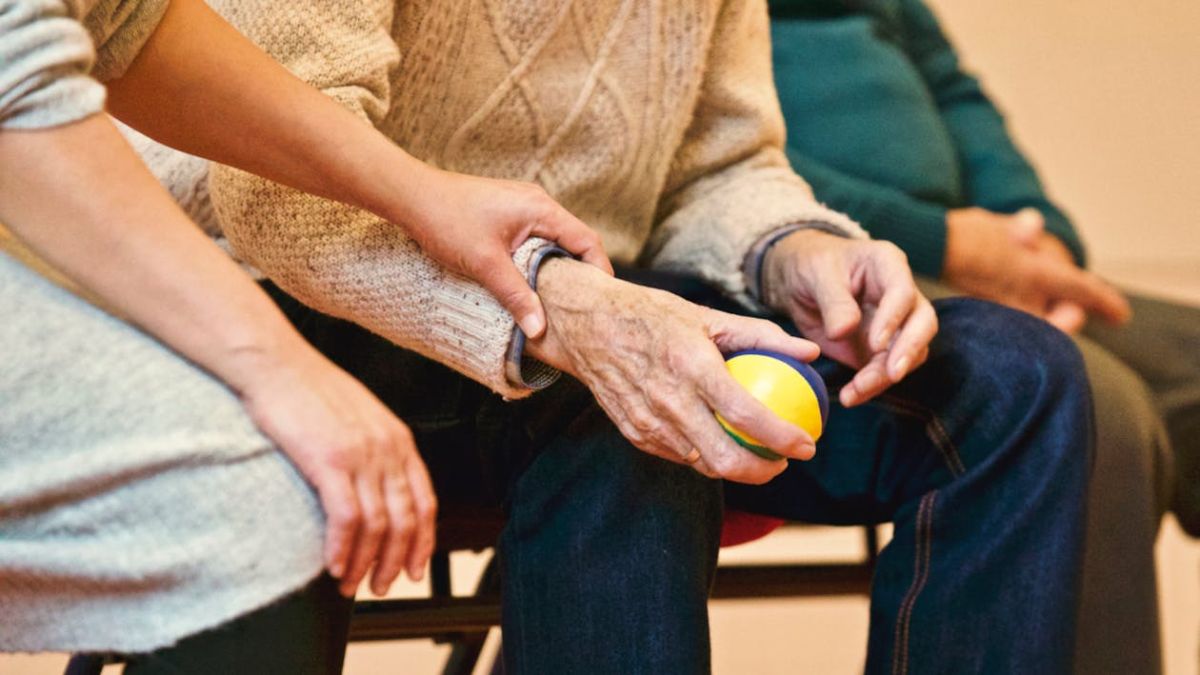As a caregiver, when you accompany your loved one or client on a visit to the doctor, it’s important to be prepared ahead of time. One of the most important things you can do is make a list of the questions you want to ask your physician. Your list should include any recent concerns or things you’ve noticed about your loved one that have come up since your last visit. However, try to keep this list as concise as possible.This is a great opportunity to get answers straight from the doctor without waiting on hold or sifting through contradicting research online.
The five most important questions to ask the doctor about a loved one living with dementia:
As a caregiver, when you accompany your loved one or client on a visit to the doctor, it’s important to be prepared ahead of time. One of the most important things you can do is make a list of the questions you want to ask your physician. Your list should include any recent concerns or things you’ve noticed about your loved one that has come up since your last visit. However, try to keep this list as concise as possible. This is a great opportunity to get answers straight from the doctor without waiting on hold or sifting through contradicting research online.
The five most important questions to ask the doctor about a loved one living with dementia:
- At this point in my loved one’s illness, what can I expect their ability to be cognitively; and is there anything I can do to improve their brain function?
- Can we have my loved one evaluated for other physical and psychiatric deficits that can be contributing to their abilities and disabilities?
- What can I do to help my loved one eat more/less?
- How can I best prevent falls and injury to my loved one?
- Where can I get respite, support, and advice from other people who are caring for a loved one with dementia?
These questions are important so you can best care for your loved one. Understand their abilities and have realistic expectations. It will help alleviate you and your loved one unneeded stress.
What to expect:
- Referrals to other medical professionals may be necessary as dementia may be one of several challenges your loved one is experiencing.
- Appetite changes are common in individuals living with dementia and communication can be difficult. There are many tips and tricks the doctor can suggest to help you better communicate as a caregiver.
- Preventing falls before they occur by accommodating your loved one’s environment accordingly can easily be done at home. Ask your doctor for any equipment that might help you with this task and where you can purchase them near you.
- Community resources and national organizations can offer support in a variety of ways and should be explored and contacted.
The five most important questions to ask the doctor about your loved one who is recovering from an injury or surgery:
- Does my loved one have any physical limitations while they are recovering?
- What additional services is my loved one entitled to while they are recovering?
- How can I help manage my loved one’s pain?
- How can we prevent future injuries/infection?
- Will my loved one recover completely or can we expect residual deficits?
These questions are the best way to be proactive about caring for your loved one after an injury and preventing injuries in the future. Realistic expectations about your loved one’s present abilities and recovery will make the process easier for both of you.
What to expect:
- You will need to understand any limitations your loved one may have. Follow your physician’s strict advice, so they are able to fully recover in the least possible amount of time.
- There may be physical therapy services, occupational therapy services or home care services that your loved one is entitled to while they are recovering. In severe situations, your loved one may be entitled to an inpatient stay in a rehabilitation facility. Be prepared to make arrangements for these if they are recommended by their doctor.
- Pain management is often misunderstood and poorly managed as a result. Please ask the doctor and pharmacist any and all questions relevant to medication(s) prescribed by your doctor; such as: How often should this be taken? Does this need to be taken with food? What should be done if it is not effectively relieving my loved one’s pain? Will it cause constipation and how can I treat that proactively?
As caregiver’s we want only what is best for our client, loved one, or friend. Stepping in and asking questions is a key part of caring for them and making sure they recover successfully. At the very least, giving them the peace of mind that you can and will remember all the details they may not is a gift any client or loved one would be happy to accept gracefully. As a result, you will find that giving care is both a gift and a reward in itself. Referrals to other medical professionals may be necessary as dementia may be one of several challenges your loved one is experiencing.
Appetite changes are common in individuals living with dementia and communication can be difficult. There are many tips and tricks the doctor can suggest to help you better communicate as a caregiver.
Preventing falls before they occur by accommodating your loved one’s environment accordingly can easily be done at home. Ask your doctor for any equipment that might help you in this task and where you can purchase them near you.
Community resources and national organizations can offer support in a variety of ways and should be explored and contacted.
The five most important questions to ask the doctor about your loved one who is recovering from an injury or surgery:
Does my loved one have any physical limitations while they are recovering?
What additional services is my loved one entitled to while they are recovering?
How can I help manage my loved one’s pain?
How can we prevent future injuries/infection?
Will my loved one recover completely or can we expect residual deficits?
These questions are the best way to be proactive about caring for your loved one after an injury and preventing injuries in the future. Realistic expectations about your loved one’s present abilities and recovery will make the process easier for both of you.
What to expect:
You will need to understand any limitations your loved one may have. Follow your physician’s strict advice, so they are able to fully recover in the least possible amount of time.
There may be physical therapy services, occupational therapy services or home care services that your loved one is entitled to while they are recovering. In severe situations, your loved one may be entitled to an inpatient stay in a rehabilitation facility. Be prepared to make arrangements for these if they are recommended by their doctor.
Pain management is often misunderstood and poorly managed as a result. Please ask the doctor and pharmacist any and all questions relevant to medication(s) prescribed by your doctor; such as: How often should this be taken? Does this need to be taken with food? What should be done if it is not effectively relieving my loved one’s pain? Will it cause constipation and how can I treat that proactively?
As caregiver’s we want only what is best for our client, loved one, or friend. Stepping in and asking questions is a key part of caring for them and making sure they recover successfully. At the very least, giving them the peace of mind that you can and will remember all the details they may not is a gift any client or loved one would be happy to accept gracefully. As a result, you will find that giving care is both a gift and a reward in itself.






